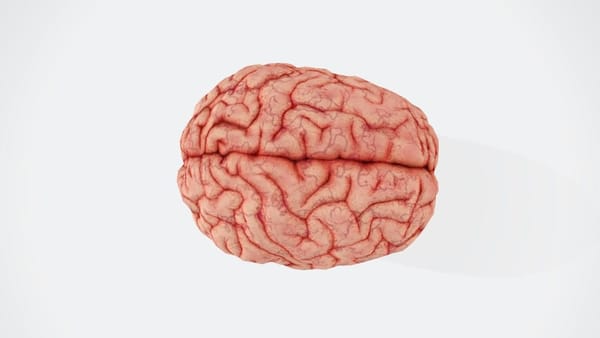Recent research has shed new light on the complex relationship between inflammation in the body and mental health disorders. This article explores the growing evidence that suggests inflammation may play a significant role in increasing the risk of psychiatric illnesses like depression, anxiety, and schizophrenia.
Key Takeaways
- New studies show a strong link between inflammation and increased risk of psychiatric disorders
- Elevated levels of inflammatory markers in the blood are associated with higher rates of mental illness
- Chronic inflammation may contribute to the development and progression of psychiatric conditions
- Anti-inflammatory treatments could potentially help prevent or treat certain mental health disorders
- More research is needed to fully understand the inflammation-mental health connection and develop targeted therapies
The Inflammation-Mental Health Connection
For many years, scientists have been investigating the potential links between physical health and mental wellbeing. One area of particular interest has been the role of inflammation in psychiatric disorders. Inflammation is the body's natural response to injury or infection, but when it becomes chronic, it can have wide-ranging effects on our health - including our mental health.
What the Latest Research Shows
A recent study published in JAMA Psychiatry has provided compelling evidence for the connection between inflammation and psychiatric illness[1]. The researchers analyzed data from over 86,000 participants in the UK Biobank, a large-scale biomedical database. They found that individuals with higher levels of inflammatory markers in their blood were significantly more likely to develop psychiatric disorders over time.
Specifically, the study revealed:
- People with elevated levels of C-reactive protein (CRP), a key marker of inflammation, had a 27% higher risk of developing any psychiatric disorder
- The risk was even higher for specific conditions, with a 45% increased risk for depression and a 52% increased risk for anxiety disorders
- These associations remained strong even after accounting for other factors like age, sex, and pre-existing health conditions
Understanding the Mechanism
While the exact mechanisms are still being studied, researchers believe that chronic inflammation may affect the brain in several ways:
- Altering neurotransmitter systems: Inflammation can disrupt the balance of important brain chemicals like serotonin and dopamine, which play crucial roles in mood regulation.
- Affecting brain structure: Chronic inflammation may lead to changes in brain structure and function, potentially impacting areas involved in emotion and cognition.
- Disrupting the gut-brain axis: Inflammation in the gut can influence the gut microbiome, which has been linked to mental health through the gut-brain connection.
- Triggering the stress response: Chronic inflammation can activate the body's stress response systems, potentially contributing to anxiety and depression.
Implications for Prevention and Treatment
The growing evidence linking inflammation to psychiatric disorders opens up new possibilities for prevention and treatment strategies. Some potential approaches include:
Anti-Inflammatory Interventions
Researchers are exploring whether anti-inflammatory medications or supplements could help prevent or treat certain mental health conditions. While more studies are needed, early results have shown promise for some patients with depression who haven't responded well to traditional treatments[2].
Lifestyle Modifications
Since chronic inflammation can be influenced by lifestyle factors, making certain changes may help reduce the risk of developing psychiatric disorders:
- Following an anti-inflammatory diet rich in fruits, vegetables, whole grains, and omega-3 fatty acids
- Engaging in regular physical activity, which has been shown to have anti-inflammatory effects
- Managing stress through techniques like meditation, yoga, or deep breathing exercises
- Getting adequate sleep, as poor sleep quality has been linked to increased inflammation
Early Screening and Intervention
The findings suggest that monitoring inflammatory markers could potentially help identify individuals at higher risk for psychiatric disorders. This could lead to earlier interventions and preventive measures for those at increased risk.
Challenges and Future Directions
While the link between inflammation and mental health is becoming clearer, there are still many questions to be answered:
- Causality: More research is needed to determine whether inflammation directly causes psychiatric disorders or if it's a consequence of the conditions.
- Individual variations: Not everyone with high inflammation levels develops mental health problems, so understanding the factors that influence susceptibility is crucial.
- Targeted treatments: Developing effective anti-inflammatory treatments specifically for psychiatric disorders requires further study.
- Long-term effects: The long-term impact of chronic inflammation on mental health over a person's lifetime needs more investigation.
Conclusion
The growing body of evidence linking inflammation to psychiatric disorders represents an exciting frontier in mental health research. While more studies are needed to fully understand this complex relationship, the findings so far suggest that addressing inflammation could play an important role in preventing and treating mental health conditions.
As research in this area continues to advance, it may lead to new approaches for promoting mental wellbeing and reducing the burden of psychiatric illness. In the meantime, focusing on lifestyle factors that reduce inflammation - such as a healthy diet, regular exercise, and stress management - may offer benefits for both physical and mental health.
Remember, if you're concerned about your mental health or experiencing symptoms of a psychiatric disorder, it's important to consult with a healthcare professional for proper evaluation and treatment.
References:
[1] JAMA Psychiatry study on inflammation and psychiatric disorders
[2] Research on anti-inflammatory treatments for depression












Member discussion